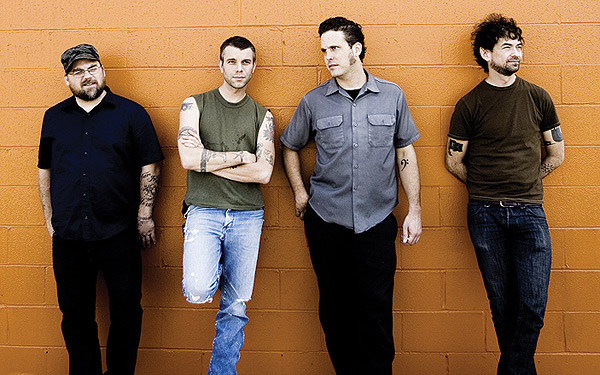
Lucero, Bobby Bare Jr. November 9th at 9 p.m. $14. Metro, 3730 N. Clark St.; 773-549-4140.

Bobby Bare Jr. |
The bloodied but unbowed South-erner has been a recurring figure in rock ever since a Canadian named Robbie Robertson had the audacity to write The Night They Drove Old Dixie Down as seen from the perspective of a fallen Confederate soldier’s brother. Almost 40 years later, the Memphis band Lucero and Nashville singer-songwriter Bobby Bare Jr. are still setting tales of devastated characters to rousing music.
Lucero’s Ben Nichols (second from left in photo) writes and sings about men haunted by guilt and lost loves, barroom brawlers, his World War II–vet grandfather (who made sergeant and got busted back to private three times), and a girlfriend’s father who “lost everything on horses, whiskey, and wedding rings.” Meanwhile, Bare, the son of a country singer who scored hits in the sixties and seventies, favors oddballs such as a man so heartbroken he gets turned into a robot.
“There’s truth in the lovable loser,” Bare explains. “You can find some real doubt and hopelessness, and that makes for a good song.” Nichols and Bare agree there’s a Southern fascination with the underdog that traces its origins all the way back to the Civil War. “You’re fighting to prove yourself,” Nichols says. “That’s a common feeling for anyone raised in the South, and it runs very deep in Lucero. We definitely feel like we’ve had to scratch and claw.”
Nichols’s battle-scarred voice passionately conveys his characters’ hard times and hard living, while Bare’s sad-sack drawl suggests lifetimes of passive-aggressive behavior, but both men refuse to surrender to the losses that permeate their songs. Lucero’s grinding, country-rock guitars and surging rhythms give the music a back-against-the-wall combativeness. Bare consistently finds dolorous humor in unlikely situations, while showcasing his versatility through a mix of boisterous R & B, mariachi fanfare, clamorous alt-rock, and steel guitar–drenched weepers.
There’s pathos in these tales of the fallen and forlorn, but also perseverance. “There’s a time to be sad and nostalgic,” Nichols says, “and a time to fight for what you need.”
Photograph: (Image 1) Wes Frazer


